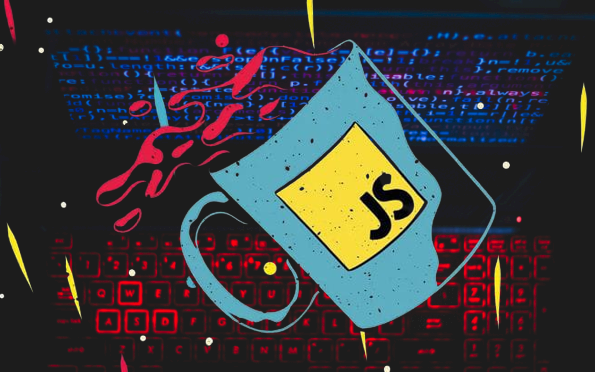
Kali Linux is a popular and powerful Linux distribution mainly used for penetration testing, digital forensics and security auditing. It is designed to provide a wide range of tools and utilities that can be used by security professionals, ethical hackers and researchers to assess the security of computer systems, networks and applications. Kali Linux is maintained and developed by Offensive Security, a cyber security training company.
Key features of Kali Linux include:
- Wide range of tools: Kali Linux comes pre-installed with hundreds of security and hacking tools, including network scanners, vulnerability assessment tools, password-cracking utilities, wireless attack tools, and more.
- Customization: Users can easily customize Kali Linux to suit their specific needs by installing additional tools, repositories, and software packages.
- Security and Forensics: Kali Linux is suitable for digital forensic tasks, such as data recovery, analysis, and evidence collection. This includes tools that help professionals investigate and recover data from compromised systems.
- Live Bootable Media: Kali Linux can be run directly from a bootable USB drive or DVD, allowing users to work on different systems without actually installing the OS.
- Updates and Support: Kali Linux receives regular updates and fixes to keep its tools up to date and secure. Users can access a vibrant community and official documentation for support.
- Ethical Hacking and Education: Kali Linux is widely used in educational settings and for ethical hacking purposes. It provides a safe and controlled environment to learn about cyber security and practice ethical hacking techniques.
- Certification: Offensive Security offers certification exams such as the Certified Ethical Hacker (CEH) and Offensive Security Certified Professional (OSCP), which test an individual’s skills using Kali Linux tools.
- Derived from Debian: Kali Linux is based on the Debian distribution of Linux. This provides the base stability, reliability and a wide range of software packages on which Kali Linux is built.
- Metapackages: Kali Linux organizes its tools into metapackages, which are groups of related tools designed to serve specific purposes. This makes it easy for users to install and manage the tools they need for a particular job.
- Graphical and command-line interfaces: Kali Linux provides both a graphical user interface (GUI) and a command-line interface (CLI). While the CLI is often preferred by experienced users, the GUI may be more user-friendly for those who are new to Linux or command-line interfaces.
- Support for Multiple Platforms: Kali Linux supports a wide variety of hardware platforms including x86, ARM and others. This allows users to run Kali Linux on a variety of devices, from traditional computers to embedded systems and single-board computers like the Raspberry Pi.
- Virtualization and Containerization: Kali Linux can be easily used in virtualization software such as VirtualBox or VMware, which enables users to set up virtual test environments. Additionally, containerization tools such as Docker can be used to create isolated environments for specific tasks.
- Kali Undercover Mode: In addition to its standard appearance, Kali Linux includes an “undercover mode”, which makes the desktop environment resemble a typical Windows system. This can be useful when working in public places or during presentations.
- Persistent USB Installation: Users can create a persistent installation of Kali Linux on a USB drive. This allows them to save session changes, data and installed tools, effectively taking their customized Kali environment with them.
- Security Awareness Training: Kali Linux is also used for security awareness training and testing within organizations. It helps organizations identify vulnerabilities and train their employees to address potential security risks.
- Community and Documentation: Kali Linux has an active community of users, developers, and contributors. The Kali Linux website provides official documentation, tutorials, forums, and resources to help users get the most out of the distribution.
- Respect for laws and ethics: It is important to emphasize that, like any hacking or security tool, the use of Kali Linux must strictly follow legal and ethical guidelines. Unauthorized penetration testing or hacking of systems without proper authorization is illegal and unethical.
Origin of Kali Linux:
Originally known as Backtrack, Kali Linux is a Debian-based Linux distribution created and maintained by Offensive Security. It was designed with a singular mission in mind: to provide a comprehensive, ubiquitous platform for penetration testing, security assessment, and digital forensics.
An arsenal of power-packed tools:
Kali Linux has an extensive and carefully curated arsenal of open-source tools that cover almost every aspect of cyber security. From reconnaissance and vulnerability analysis to network sniffing and wireless attacks, these tools provide security professionals with a wide range of options for assessing and strengthening digital security.
Penetration Testing and Ethical Hacking:
Kali Linux is the shining light in the field of penetration testing and ethical hacking. Security professionals and ethical hackers use it to simulate real-world cyber attacks, helping organizations identify vulnerabilities and vulnerabilities before malicious actors can. Kali Linux facilitates tasks such as exploiting vulnerabilities, running phishing campaigns, and conducting comprehensive security assessments under controlled and ethical conditions.
Forensic Analysis and Incident Response:
Beyond penetration testing, Kali Linux serves as an indispensable toolset for digital forensics and incident response. Its suite of forensic tools helps investigators analyze digital evidence, reconstruct events, and recover data from compromised systems. In the aftermath of cyber attacks or security breaches, Kali Linux plays a key role in determining the scope and impact of incidents.
Kali Linux continues to evolve and adapt to the changing cyber security landscape, providing professionals with a comprehensive toolkit for a variety of security-related tasks. Remember, if you are new to Kali Linux or cyber security, it is important to learn these tools and use them responsibly and ethically.


